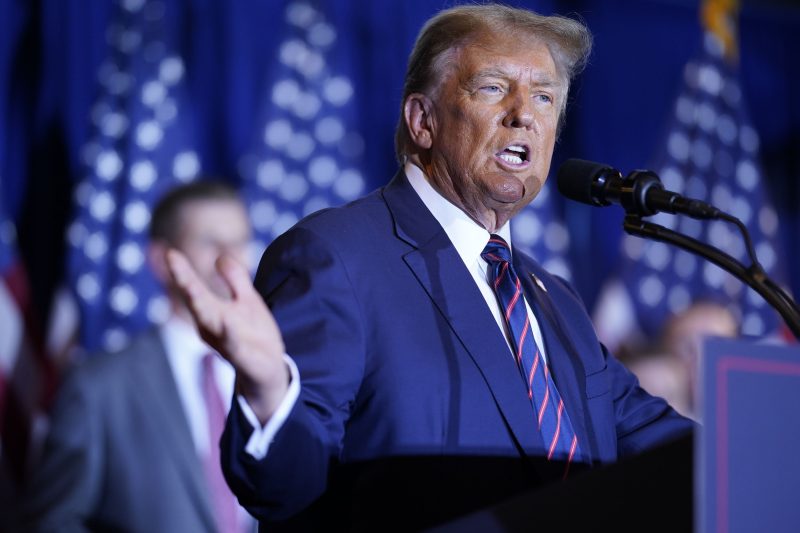
Supreme Court Summoned by Trump to Pause Jan. 6 Trial: Cites Potential Impact on 2024 Election!
Former U.S. President Donald Trump has recently sought assistance from the Supreme Court to postpone his January 6 trial, citing the potential impact on the 2024 presidential election. His request not only highlights the legal complexities surrounding his situation but also draws attention to its potential political implications.
The Jan. 6 trial is primarily focused on Trump’s alleged attempt to overturn the 2020 presidential election’s results. Critics assert he incited the violence that erupted at the U.S. Capitol building, leading to a significant breach of national security. However, the former president’s legal team argued potential political ramifications as a reason to postpone the trial.
Trump’s lawyers have argued that the proceedings would compromise Trump’s ability to plan and participate in the 2024 election campaign. They insist that the litigation will serve as a distraction from focusing on crucial matters related to the election. Furthermore, they voiced concerns that trial’s outcome could unjustly tarnish Trump’s reputation as a potential candidate, thus compromising his chances in the election.
According to his legal counsels, the proceedings for an event that occurred during his previous administration might unduly influence the populace’s perception, potentially skewing votes. Thus, they put forth a plea to the highest court in the country, hoping for a decision that would grant them a stay.
In context, Trump had faced impeachment for incitement of insurrection over the Capitol riot, though the Senate did not convict him. This trial presents a similar challenge—it seeks to hold him accountable for an action his detractors say was a blow to democracy. The allegations posed in the trial are based on Trump’s repeated claims of electoral fraud, and his alleged attempts to pressurize Georgia’s Secretary of State to find enough votes to overturn the election results.
While the Supreme Court has yet to respond to Trump’s request, the ramifications of their decision could be highly influential. It could either pave the way for Trump to focus his efforts on the upcoming election, or it could lead to a trial that could potentially besmirch his reputation. Regardless, this plea to the high court only adds to the cloud of uncertainty over the former president’s political future.
Trump’s move also presents an ethical conundrum; those in favor argue for a fair political field, devoid of unfair influence rendered by an ongoing trial. Critics, on the other hand, argue that no individual, regardless of their political standing, should be exempt from facing legal repercussions for alleged actions.
Overall, it’s undeniable that the unfolding of events in the upcoming months will hold far-reaching implications not only on Trump’s prospective participation in the 2024 elections but also on the broader framework of legal accountability for political figures in America.
